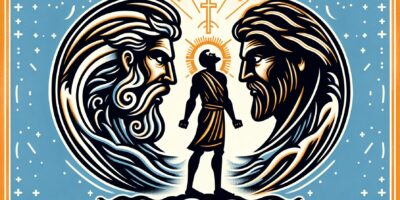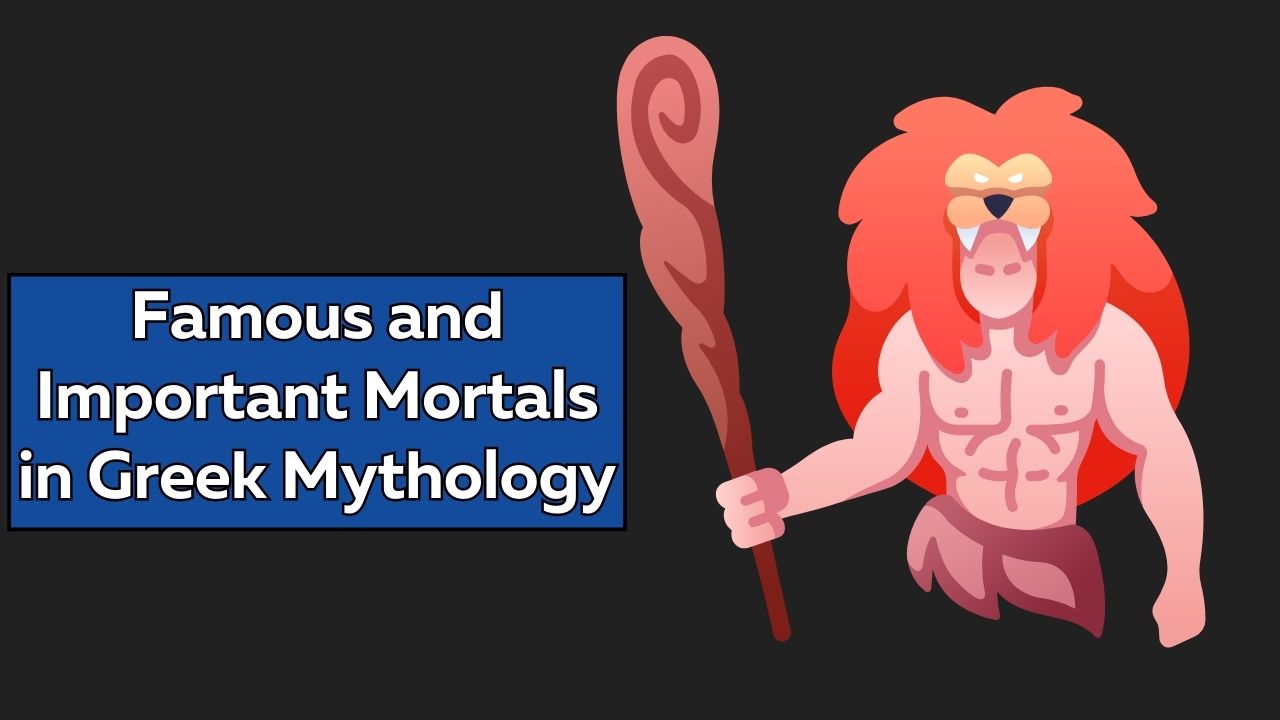The Olympian saga unfolds with a dramatic generational shift as Zeus ascends to power and replaces his father, Cronus, as the ruler of the gods. This pivotal moment in Greek mythology ushers in a new era and transforms the dynamics of the divine world. Join us as we explore the 15 key differences between Zeus and Cronus, shedding light on the changing of the guard and the subsequent evolution of the Olympian pantheon.
Difference 1: Parentage and Birth
Cronus: The Titan of Time
Cronus, one of the Titans, was the son of Uranus (the sky) and Gaia (the Earth). He represented the forces of time and was born in the primordial chaos.
Zeus: The Young Olympian
Zeus, the youngest child of Cronus and Rhea, marked the emergence of the Olympian gods. His birth signified a generational shift in the divine hierarchy.
Nuance: Cronus belongs to the older generation of Titans, while Zeus represents the new order of Olympian deities.
Difference 2: Birthright and Prophecy
Cronus: The Prophecy of Overthrow
Cronus, driven by the prophecy that his own child would overthrow him, resorted to devouring his offspring to maintain his reign. This act of infanticide marked his rule.
Zeus: The Hidden Child
Zeus, forewarned of his father’s actions, was hidden from Cronus by his mother, Rhea. This cunning maneuver ensured Zeus’s survival and eventual ascension.
Nuance: Cronus feared a prophecy of his downfall, while Zeus’s birth was concealed to secure his future.
Difference 3: Reign and Leadership
Cronus: The Titan Ruler
Cronus reigned as the supreme Titan, ruling over a cosmos that was still in its formative stages. His dominion was characterized by the Titans’ rule.
Zeus: The Olympian King
Zeus’s ascent marked the establishment of Olympus as the divine abode. He presided over the Olympian pantheon, which included gods and goddesses such as Athena, Apollo, and Aphrodite.
Nuance: Cronus ruled during a Titan-centric era, while Zeus ushered in the age of the Olympians.
Difference 4: Sibling Survival
Cronus: The Devourer of Kin
Cronus devoured each of his children as they were born, fearing that one of them would fulfill the prophecy of his overthrow.
Zeus: The Survivor and Sibling Liberator
Zeus was the only child to escape Cronus’s clutches, and he later orchestrated the liberation of his siblings from their father’s belly.
Nuance: Cronus consumed his offspring, while Zeus ensured their freedom.
Difference 5: Defeating Cronus
Cronus: Overthrown by Trickery
Cronus’s rule came to an end through trickery and cunning. Zeus, in alliance with his mother Rhea, deceived Cronus into regurgitating his swallowed siblings, leading to a climactic battle between the Titans and the Olympians.
Zeus: A Battle of Generations
The conflict between Zeus and Cronus symbolized the shift in power from the Titans to the Olympians. Zeus’s victory marked the dawning of a new age.
Nuance: Cronus was outwitted, while Zeus led a generational battle for supremacy.
Difference 6: Patronage and Domain
Cronus: Symbol of Time
Cronus was often associated with time, reflecting his Titan nature. His domain was not limited to a specific realm or element.
Zeus: Lord of the Skies
Zeus’s rule extended over the heavens and the skies. He was the god of thunder, lightning, and the ruler of Olympus.
Nuance: Cronus represents an abstract concept, while Zeus governs the natural world.
Difference 7: Attributes and Personality
Cronus: The Tyrant
Cronus’s rule was marked by tyranny and fear. His actions were driven by the paranoia of being overthrown.
Zeus: The Benevolent King
Zeus’s reign embodied benevolence and justice. He was seen as a protector of the weak and a source of wisdom.
Nuance: Cronus was a tyrant, while Zeus was a just and benevolent ruler.
Difference 8: Interaction with Mortals
Cronus: Detached from Mortals
Cronus had minimal interaction with mortal beings, as his focus was primarily on maintaining his Titan rule.
Zeus: Interactions and Interventions
Zeus, on the other hand, frequently interacted with mortals, intervening in their affairs and taking an active role in human destinies.
Nuance: Cronus remained distant from mortals, while Zeus engaged with them directly.
Difference 9: Depictions in Art
Cronus: Limited Representation
Cronus is not as commonly depicted in art and mythology as Zeus. His image is more abstract and less iconic.
Zeus: Iconic Depictions
Zeus is one of the most recognized figures in Greek mythology, often portrayed with a thunderbolt in hand and a regal, bearded visage.
Nuance: Cronus’s representation is less prominent, while Zeus is widely recognized.
Difference 10: Influence on Greek Mythology
Cronus: Titan Legacy
Cronus is primarily associated with the Titans and their era in Greek mythology. His reign is a crucial part of the Titans’ narrative.
Zeus: Olympian Legacy
Zeus’s reign represents the transition from the Titans to the Olympians, marking a significant shift in Greek mythology.
Nuance: Cronus is a pivotal Titan figure, while Zeus symbolizes the emergence of the Olympian pantheon.
Difference 11: Consort and Offspring
Cronus: Marital Ties
Cronus’s marriage to Rhea produced several divine children, all of whom he devoured in fear.
Zeus: Divine Family
Zeus, married to Hera, was the father of many gods and heroes, including Hercules, Athena, and Apollo.
Nuance: Cronus’s marital ties were marked by devouring offspring, while Zeus’s divine family expanded the Olympian pantheon.
Difference 12: Fertility and Agriculture
Cronus: Agrarian Associations
Cronus had connections to agriculture and harvest, representing the cyclical nature of time and seasons.
Zeus: Cosmic Influence
Zeus’s powers extended to the cosmic realm, controlling thunder and lightning and influencing the natural world.
Nuance: Cronus’s associations were agrarian, while Zeus’s dominion encompassed the cosmos.
Difference 13: Aftermath of Rule
Cronus: Imprisoned in Tartarus
After his defeat, Cronus was imprisoned in the depths of Tartarus, a place reserved for the most wicked entities.
Zeus: Ruler of Olympus
Zeus, victorious, became the reigning god of Olympus, continuing the lineage of the Olympian deities.
Nuance: Cronus faced imprisonment, while Zeus claimed the throne of Olympus.
Difference 14: Legacy in Modern Culture
Cronus: Limited Modern Depictions
Cronus’s influence in modern culture is relatively limited compared to other Greek mythological figures. He is not as frequently featured in contemporary literature, art, or media.
Zeus: Widespread Recognition
Zeus, on the other hand, remains one of the most recognized figures in Greek mythology and continues to be a prominent character in various forms of media, from literature to film and television.
Nuance: Cronus’s modern cultural presence is minimal, while Zeus maintains widespread recognition.
Difference 15: Role in the Cosmic Order
Cronus: An Earlier Epoch
Cronus’s rule symbolizes the earlier stage of the cosmos, marked by the reign of the Titans and the elemental forces.
Zeus: The Olympian Epoch
Zeus’s ascension marks the Olympian epoch, characterized by the establishment of the Olympian pantheon and a more structured divine order.
Nuance: Cronus represents a more primordial cosmic order, while Zeus embodies a more structured and hierarchical divine system.
Conclusion
The transition from Cronus to Zeus in Greek mythology signifies a profound shift in the divine hierarchy and cosmic order. Cronus, the Titan of Time, represented an earlier, more chaotic era, while Zeus, the King of the Gods, ushered in a new age of structured governance and benevolent rule. Their differences in birth, personality, rule, and legacy illustrate the transformative power of generational change, leaving an indelible mark on the pantheon and the timeless stories of Greek mythology.







Leave a Reply